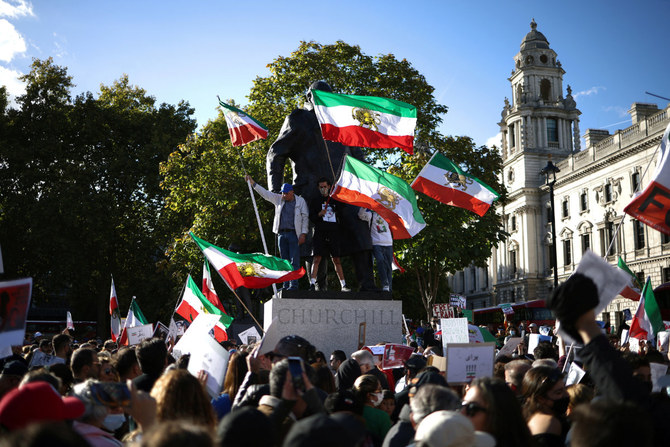DUBAI/ PARIS: Female students in Tehran chanted “get lost” as Iranian President Ebrahim Raisi visited their university campus on Saturday and condemned protesters enraged by the death of a young woman in custody, activists said.
Raisi addressed professors and students at Alzahra University in Tehran, reciting a poem that equated “rioters” with flies, as nationwide demonstrations entered a fourth week.
A video posted on Twitter by the activist 1500tasvir website showed what it said were women students chanting “Raisi get lost” and “Mullahs get lost” as the president visited their campus.
An Iranian state coroner’s report denied that 22-year-old Mahsa Amini had died due to blows to the head and limbs while in morality police custody and linked her death to pre-existing medical conditions.
Amini, an Iranian Kurd, was arrested in Tehran on Sept. 13 for wearing “inappropriate attire,” and died three days later. Her death has ignited demonstrations, marking the biggest challenge to Iran’s clerical leaders in years.
Rights groups say more than 185 people have been killed, hundreds injured and thousands arrested by security forces confronting protests.
After a call for mass demonstrations on Saturday, security forces shot at protesters and used tear gas in the Kurdish cities of Sanandaj and Saqez, according to the Iranian human rights group Hengaw.
In Sanandaj, capital of the northwestern Kurdistan province, one man lay dead in his car while a woman screamed “shameless,” according to Hengaw, which said he had been shot by security forces after he honked his horn as a sign of protest.
A video shared on social media showed a young woman lying unconscious on the ground after she was apparently shot in the northeastern city of Mashhad. Protesters gathered around her to help.
Hengaw also carried a video of emergency personnel trying to resuscitate a person and said one protester had died after being shot in the abdomen by security forces in Sanandaj.
The widely followed 1500tas-vir Twitter account also reported shootings at protesters in the two northwestern Kurdish cities.
A university student who was on his way to join protests in Tehran said he was not afraid of being arrested or even killed.
“They can kill us, arrest us but we will not remain silent anymore. Our classmates are in jail. How can we remain silent?” the student, said.
Despite Internet restrictions designed to impede gatherings and stop images of the crackdown getting out, protesters have adopted new tactics to get their message across.
“We are not afraid anymore. We will fight,” said a large banner placed on an overpass of Tehran’s Modares highway.
















